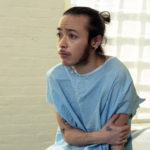Ending HIV Transmission In the US: Preparing with PrEP
In 2017, gay and bisexual men accounted for two-thirds of the 40,000 new HIV cases. New efforts made by the federal government to end HIV transmission by 2030 will reach 48 counties across 19 states, plus Washington D.C., Puerto Rico and rural areas in seven states mostly in the South, where the majority of new HIV diagnoses are found.
One of the states that the Administration will focus on is Illinois. According to the CDC, Illinois ranked #7 nationally for the highest number of HIV diagnoses in 2017. In that year, the Chicago neighborhoods with the highest average HIV infection diagnosis rates were Uptown, Chatham, and Washington Park.
One of the ways that the U.S. is trying to end HIV transmission is by making the HIV prevention medication PrEP more accessible. In June 2019, the US Preventive Services Task Force recommended that clinicians give PrEP to patients that are considered “high risk.” Beginning in 2021, most health plans will cover HIV preventive drugs and patients wont be charged out-of-pocket fees for it. According to more recent research, PrEP treatment can further improve by changing the treatment from a daily pill to allowing people to take four pills, two to 24 hours before sex and one pill a day for the next two days. This new approach is only recommended for men who have sex with men, but could improve the appeal of taking PrEP, according to Dr. Oliver Bacon:
“There are people who really object to taking a pill every day if they’re not having sex that frequently,” said Dr. Oliver Bacon, a deputy director and physician at the San Francisco Department of Public Health. The on-demand approach, he added, “extends PrEP to people who actually need it based on the sex they’re having but wouldn’t take a daily pill.”
While more than 200,000 people in the U.S. have taken PrEP, there are more than a million individuals at risk for HIV. Many of those people could benefit from PrEP treatment.
As a member of the Getting to Zero Illinois campaign, Legal Council is dedicated to seeing the end of HIV transmission in Illinois by 2030. Through partnerships with community-based organizations, health care providers, government agencies, people living with HIV, and other advocates and community members, we can dramatically shift HIV in Illinois.


